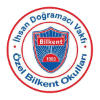Creativity-Activity-Service (CAS) is one of the three essential elements that every student must complete as part of the Diploma Programme (DP). Studied throughout the Diploma Programme, CAS involves students in a range of activities alongside their academic studies. It is not formally assessed; however, students reflect on their CAS experiences as part of the DP and provide evidence of achieving the seven learning outcomes.
How is CAS structured?
The three strands of CAS, which are often interwoven with particular activities, are characterised as follows:
- Creativity – arts and other experiences that involve creative thinking.
- Activity – physical exertion contributing to a healthy lifestyle, complementing academic work elsewhere in the DP.
- Service – an unpaid and voluntary exchange that has a learning benefit for the student. The rights, dignity and autonomy of all those involved are respected.
In order to demonstrate these concepts, students are required to undertake a CAS Project which involves at least two, if not all three of the CAS components over a longer period of time; at least 3 months regular participation and timely reflection is required. The project challenges students to:
1. Identify your own strengths and develop areas for personal growth;
2. Demonstrate that challenges have been undertaken, developing new skills in the process;
3. Demonstrate how to initiate and plan a CAS experience;
4. Show commitment to and perseverance in CAS experiences;
5. Demonstrate the skills and recognize the benefits of working collaboratively;
6. Demonstrate engagement with issues of global significance;
7. Recognize and consider the ethics of choices and actions.
What is the significance of CAS?
CAS enables students to enhance their personal and interpersonal development by learning through experience. It provides opportunities for self-determination and collaboration with others, fostering a sense of accomplishment and enjoyment from their work. At the same time, CAS is an important counterbalance to the academic pressures of the DP.
What does a CAS Programme consist of?
A good CAS programme should be both challenging and enjoyable – a personal journey of self-discovery. Each student has a different starting point, and therefore different goals and needs, but for many their CAS activities include experiences that are profound and life‑changing.
Completion of CAS
Students must undertake a balanced programme of CAS experiences, and complete at least one CAS project per academic year, to ensure that all seven learning outcomes have been conducted. Since reflections cannot be graded as they’re personal to each and every individual, along with evidence collected when participating in a CAS experience, students simply pass or fail their Diploma Programme. The IB places great emphasis on the CAS programme as it helps students build the interpersonal skills needed for undergraduate study and beyond.
*Please note that much of the information explained above referring to the International Baccalaureate is taken from www.ibo.org





